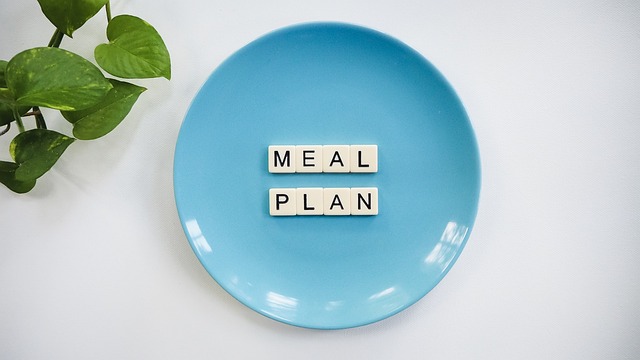
Healthy diet plans are essential for maintaining good health and preventing chronic diseases. A healthy diet is one that provides all the necessary nutrients and energy required for the body to function optimally. It should include a variety of foods from all food groups, including fruits, vegetables, whole grains, lean proteins, and healthy fats.
There are many benefits to following a healthy diet plan. It can help maintain a healthy weight, reduce the risk of chronic diseases such as heart disease, diabetes, and cancer, improve brain function, and boost overall energy levels. A healthy diet can also improve mood and reduce the risk of depression and anxiety.
However, with so many diet plans available, it can be challenging to know which one to choose. Some popular diet plans include the Mediterranean diet, the DASH diet, and the vegetarian or vegan diet. It’s essential to choose a diet plan that suits your individual needs and preferences and is sustainable in the long term.
Table of Contents
Understanding Nutrients
Macronutrients
Macronutrients are nutrients that are required in large amounts by the body to maintain proper functioning. These nutrients include carbohydrates, proteins, and fats. Carbohydrates are the primary source of energy for the body, while proteins are essential for building and repairing tissues. Fats are also important for energy storage and insulation.
| Macronutrient | Function | Sources |
|---|---|---|
| Carbohydrates | Provide energy | Fruits, vegetables, grains |
| Proteins | Build and repair tissues | Meat, fish, beans, nuts |
| Fats | Energy storage and insulation | Oils, nuts, seeds |
Micronutrients
Micronutrients are nutrients that are required in smaller amounts by the body but are still essential for proper functioning. These nutrients include vitamins and minerals. Vitamins are organic compounds that are required for various metabolic processes in the body, while minerals are inorganic compounds that are required for the proper functioning of enzymes and other cellular processes.
| Micronutrient | Function | Sources |
|---|---|---|
| Vitamin A | Vision, immune system | Carrots, sweet potatoes, spinach |
| Vitamin C | Collagen synthesis, immune system | Citrus fruits, strawberries, bell peppers |
| Iron | Oxygen transport | Red meat, spinach, beans |
| Calcium | Bone health | Dairy products, leafy greens |
Hydration
Water is also an essential nutrient that is required for proper bodily function. It is vital for regulating body temperature, transporting nutrients, and removing waste. The amount of water needed varies depending on factors such as age, gender, and activity level.
It is recommended that individuals drink at least 8 cups of water per day, or more if they engage in physical activity or live in a hot climate. Other sources of hydration include fruits and vegetables, which have a high water content.
Dietary Guidelines
Balanced Diet Principles
A balanced diet is essential for maintaining good health and preventing chronic diseases. A balanced diet consists of a variety of foods from different food groups. The following are the key principles of a balanced diet:
- Eating a variety of foods from different food groups
- Consuming fruits and vegetables in abundance
- Choosing whole grains over refined grains
- Including lean protein sources in the diet
- Limiting the intake of saturated and trans fats, added sugars, and sodium
Dietary Reference Intakes
Dietary Reference Intakes (DRIs) are a set of guidelines developed by the Institute of Medicine (IOM) to provide recommendations for nutrient intake for individuals. DRIs are based on age, gender, and other factors such as pregnancy and lactation.
DRIs include the following:
- Recommended Dietary Allowance (RDA): The average daily nutrient intake level that is sufficient to meet the nutrient requirements of 97-98% of healthy individuals.
- Adequate Intake (AI): The recommended average daily nutrient intake level that is based on observed or experimentally determined estimates of nutrient intake by a group of healthy people.
- Tolerable Upper Intake Level (UL): The highest level of daily nutrient intake that is likely to pose no risk of adverse health effects to almost all individuals in the general population.
Following DRIs can help individuals make informed decisions about their nutrient intake and ensure that they are meeting their nutrient requirements.
Diet Plans Overview
Mediterranean Diet
The Mediterranean diet is a plant-based diet that emphasizes whole, unprocessed foods such as fruits, vegetables, whole grains, legumes, nuts, and seeds. It also includes moderate amounts of fish, poultry, dairy, and red wine. This diet is rich in healthy fats, fiber, and antioxidants, and has been shown to reduce the risk of heart disease, diabetes, and certain cancers.
Plant-Based Diet
A plant-based diet is centered around foods derived from plants, such as fruits, vegetables, whole grains, legumes, nuts, and seeds. This diet may or may not include small amounts of animal products, depending on the individual’s preferences and needs. Plant-based diets are naturally low in saturated fats and high in fiber, vitamins, and minerals. They have been shown to reduce the risk of chronic diseases such as heart disease, diabetes, and cancer.
Keto Diet
The keto diet is a high-fat, low-carbohydrate diet that aims to put the body into a state of ketosis, where it burns fat for fuel instead of carbohydrates. This diet typically includes high amounts of meat, dairy, and oils, and restricts or eliminates carbohydrates such as grains, fruits, and some vegetables. While the keto diet has been shown to be effective for weight loss and may have some benefits for certain medical conditions, it can be difficult to follow and may increase the risk of heart disease and other health problems in the long term.
Paleo Diet
The paleo diet is based on the idea of eating like our hunter-gatherer ancestors, and includes foods that could be hunted, fished, or gathered such as meat, fish, fruits, vegetables, nuts, and seeds. This diet excludes processed foods, grains, dairy, and legumes. While the paleo diet may have some benefits such as weight loss and improved blood sugar control, it is not supported by scientific evidence and may be difficult to follow in the long term.
Overall, there are many different diet plans to choose from, each with their own unique benefits and drawbacks. It is important to choose a diet that is sustainable, balanced, and meets individual nutritional needs.
Meal Planning Strategies
Portion Control
Portion control is an essential aspect of healthy eating. It involves managing the amount of food you consume during meals. One way to practice portion control is to use smaller plates and bowls. Another strategy is to measure your food portions using measuring cups or a food scale.
Meal Timing
Meal timing is another important factor to consider when planning a healthy diet. Eating at regular intervals throughout the day can help regulate blood sugar levels and keep you feeling full. It is recommended to eat three main meals and two to three snacks per day.
Shopping and Meal Prep
Shopping and meal prep are crucial components of healthy eating. When grocery shopping, it’s important to choose whole foods such as fruits, vegetables, lean proteins, and whole grains. Meal prepping can help save time during the week and ensure that healthy meals are readily available. Preparing meals in advance can also help with portion control.
In summary, portion control, meal timing, and shopping and meal prep are important strategies for planning a healthy diet. By implementing these strategies, individuals can make healthier food choices and improve their overall health and well-being.
Special Considerations
Allergies and Intolerances
Individuals with food allergies or intolerances should take special care when planning their diets. Common allergens include peanuts, tree nuts, shellfish, eggs, milk, soy, and wheat. Those with allergies or intolerances to these foods should avoid them and seek out alternatives that meet their nutritional needs.
It is important to read food labels carefully and to communicate any food allergies or intolerances to restaurant staff when dining out. Consultation with a registered dietitian can also be helpful in developing a meal plan that meets nutritional needs while avoiding allergens.
Vegetarian and Vegan Diets
Vegetarian and vegan diets can be healthy and nutritionally adequate when properly planned. These diets can provide all the necessary nutrients, including protein, iron, calcium, and vitamin B12, through a variety of plant-based foods.
It is important for vegetarians and vegans to include a variety of protein sources in their diets, such as beans, lentils, tofu, and nuts. Vitamin B12 is found primarily in animal products, so those following a vegan diet may need to supplement with fortified foods or a vitamin B12 supplement.
Weight Management
For individuals looking to manage their weight, it is important to focus on creating a calorie deficit through a combination of diet and exercise. A healthy diet plan should include a variety of nutrient-dense foods, such as fruits, vegetables, whole grains, lean proteins, and healthy fats.
Portion control and mindful eating can also be helpful in weight management. This includes paying attention to hunger and fullness cues, avoiding distractions while eating, and slowing down to savor each bite.
Overall, it is important to consult with a healthcare professional or registered dietitian when developing a healthy diet plan, especially if you have special considerations such as allergies, intolerances, or specific dietary needs.
Monitoring and Adjusting Your Diet
Self-Monitoring Techniques
Self-monitoring is an important aspect of maintaining a healthy diet plan. It involves keeping track of what you eat and drink, as well as your physical activity. This can be done through the use of a food diary, mobile apps, or even just mental notes. By tracking your food intake, you can identify areas where you may need to make adjustments to your diet.
Adjusting for Physical Activity
Physical activity is an important component of a healthy lifestyle. It is important to adjust your diet to accommodate for changes in physical activity levels. For example, if you are increasing your physical activity, you may need to increase your calorie intake to ensure that you are getting enough energy to fuel your workouts. On the other hand, if you are decreasing your physical activity, you may need to decrease your calorie intake to avoid weight gain.
Consulting Nutrition Professionals
If you are having trouble monitoring or adjusting your diet on your own, it may be helpful to consult with a nutrition professional. A registered dietitian can provide personalized advice and guidance on how to create and maintain a healthy diet plan. They can also help you identify areas where you may need to make adjustments to your diet to achieve your health goals.
Frequently Asked Questions
What are the essential components of a balanced diet for weight loss?
A balanced diet for weight loss should include a variety of nutrient-dense foods such as vegetables, fruits, lean proteins, whole grains, and healthy fats. It is important to limit processed foods, added sugars, and saturated and trans fats.
How can beginners start a healthy eating plan?
Beginners can start a healthy eating plan by gradually incorporating more whole foods into their diet, such as fruits, vegetables, whole grains, and lean proteins. It is important to set realistic goals and make small changes over time. Consulting a registered dietitian can also be helpful in creating a personalized plan.
What are the most effective strategies for meal planning on a budget?
Effective strategies for meal planning on a budget include buying in-season produce, buying in bulk, planning meals around sales and coupons, and using leftovers for future meals. It is also important to compare prices and shop at discount grocery stores.
Which foods should be included in a clean eating grocery list?
A clean eating grocery list should include whole, unprocessed foods such as fruits, vegetables, whole grains, lean proteins, and healthy fats. It is important to avoid processed foods, added sugars, and artificial ingredients.
How does portion control contribute to a healthy diet?
Portion control can contribute to a healthy diet by helping to manage calorie intake and prevent overeating. It is important to eat appropriate portion sizes of nutrient-dense foods to meet daily nutrient needs and maintain a healthy weight.
What are some simple healthy meal plans for women’s nutritional needs?
Simple healthy meal plans for women’s nutritional needs should include a variety of nutrient-dense foods such as fruits, vegetables, whole grains, lean proteins, and healthy fats. It is important to meet daily nutrient needs for calcium, iron, and other essential vitamins and minerals. Consulting a registered dietitian can also be helpful in creating a personalized plan.

